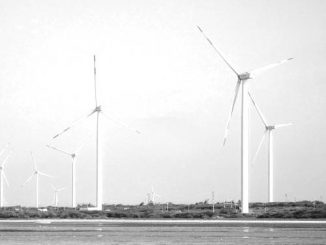The Andalusian regional elections on 19 June showed Spain’s left coalition government is provoking political apathy amongst the poorest Spaniards
You are here: Home›Authors›Cristina Monge
Cristina Monge is a lecturer of sociology at the University of Zaragoza, Spain
Cross-posted from the Green European Journal

Data from the post-electoral survey is clear about the central trend: the Right is uniting and gaining ground. The key to victory for the conservative Partido Popular (PP) in the Andalusian elections was retaining more than 80 per cent of their vote, while gaining the support of 61.4 per cent of those who voted for liberal Ciudadanos in 2018 and 31.4 per cent of those who opted for far-right Vox. The PP had been in power since 2018 after forming a coalition with Ciudadanos that also depended on outside support from Vox. The Andalusian Right has united on two fronts, and the profile and location of the Vox voters will most likely lead them to believe that they have made the best use of their votes by turning to the PP.
As has happened in other regional elections in recent years and just as public opinion surveys have predicted on the national level, Ciudadanos is disappearing from the political arena. In Andalusia, they are doing so rather dramatically. In 2018, they won 21 seats and 660,000 votes in 2018, which enabled them to take the vice-presidency of the Government and four other ministries. This time around, they won no seats in Parliament and received fewer than 121,000 votes.
The Left fragments
For the Left, the defeat was indisputable, although for different reasons in each party. The centre-left Socialist Worker’s Party’s (PSOE) results indicate that they have barely begun to recover from the setbacks of 2018 in Andalusia. To its left, the 17 seats in Parliament gained by Adelante Andalucía (a force that represented the political views of Podemos and other leftist organisations) in 2018 were more than double the seats won by the two fragments the coalition split into ahead of this June’s vote: green-left Por Andalucia and the more radical Adelante Andalucía. This loss is not only due to having divided into two candidacies, but also due to conflicts and mistrust emerging between the two sides of Por Andalucía electoral alliance.
What’s more, Por Andalucía waged outright war on Teresa Rodríguez, the charismatic leader of Adelante Andalucía who came up through the organisation Anticapitalistas. This fragmentation is a response to two issues: first, a previous rupture between Podemos and Teresa Rodríguez, the leader of the Anticapitalist faction, who topped the list in the previous elections and who was one of the most well-known and popular people on the Spanish Left. Second, Spain at large has seen a profound reconfiguration of Podemos’ political structure and influence, seen in the moves by Labour Minister Yolanda Díaz to launch a political and citizen mobilisation initiative that may soon overtake Podemos itself.
Parties more closely linked with green programmes were not only divided and opposed to one another, but also fragmented. For its part, PSOE, after having announced support for a Partido Popular proposal to legitimise previously illegal irrigation in Doñana – despite the damage caused by droughts in the area – barely raised environmental issues throughout its campaign. Now, most likely aware of their mistake, they have withdrawn their support for the controversial measure.
On June 19, 41.64 per cent of eligible voters decided against casting a vote. It was the second highest rate of abstention in the history of Andalusian regional elections. According to post-electoral surveys, the main reasons have to do with a mistrust of politicians and the political system. This mistrust is clearly more pronounced among progressives, given how asymmetrical the abstention was. Rooted in poor neighbourhoods, some of the most impoverished districts only had a 12 per cent voter turnout rate. In upper middle class and wealthy neighbourhoods, the percentage was exactly the opposite.
A sign of things to come?
It is important to be cautious when extrapolating general election results from regional elections but there are tendencies. The Andalusian elections were the sixth round of regional elections since the beginning of the pandemic. This point, together with current national public opinion studies, provide some indications of the electoral landscape in Spain today. Five trends are clear.
First, in times of uncertainty, people vote for security. Since the initial outbreak of the pandemic, all of the regional elections have reinforced the popularity of regional governments, associated with care and stability in difficult times. Meanwhile, blame and anger are directed towards the national government, which has had more media presence and prominence in dealing with the pandemic.
Second, the blocs are breaking up. This electoral upheaval has shaken both the Right and Left to the point of breaking apart ideological blocs. In the Madrid elections, it was already observable that about 5 per cent of Socialist voters opted for the Partido Popular. In Andalusia, the tendency was even more pronounced – according to the CIS post-electoral survey, 15.6 per cent of those who voted for PSOE four years ago decided to go with the PP this time around. This swing represents a particularly remarkable anomaly in the electoral history of Spain.
Third, Vox’s far right is stagnant or in decline. The first parliament which Vox stormed into was the Andalusian Parliament in 2018, when they won 396,000 votes, representing 11 per cent of the vote and 12 seats. In 2022, they ended up with 494,000 votes, or 14 per cent, translating into 14 seats. These numbers could lead one to believe that Vox is increasing in popularity, but this analysis has one fault.
Vox achieved its best results at the national level in the repeat general election of November 10, 2019, with 3,657,000 votes, representing 15.2 per cent of the vote and 52 seats and leaving Vox in third place. In Andalusia, in the same election, the party won 870,000 votes, more than 20 per cent of the vote. These were the expectations with which they began this electoral campaign, which explains the sense of frustration and defeat they have expressed since election night. If we analyse what happened in the Castile and Leon elections on February 14th, we see the same tendency. Vox is losing ground compared to 2019.
Fourth, quiet politics is back. Juan Manuel Moreno Bonilla, clear victor of these elections, reached his triumph with a polite and modest campaign of almost four years during which he managed to make Andalusia get over its fear of the Right after 41 years of PSOE rule. Despite the fact that his policies are clearly conservative and heavily influenced by the far-right VOX, he succeeded in projecting a moderate image. This, no doubt, was key to his success, as confirmed by public opinion polls which cite the leader and his public profile as some of the most important factors in swaying the vote. Are we approaching the end of theatrical politics? Judging by these results, one might begin to think so.
Finally, quite a few analysts have viewed the regional elections held since the pandemic as a return to bipartisanism. We should wait and see. While it is true that there were many more in Andalusia who voted for the PP and PSOE four years ago, it is also true that Vox has maintained its votes or even increased slightly since 2018, and that the space to the left of the PSOE has been faced with particularly turbulent conditions.
Rather than a return to bipartisan politics, we can speak of the end of the era of “new politics” represented by two parties with distinct ideological orientations: Ciudadanos and Podemos. This notion of politics has not only been defeated in every election, but has also disappeared from the political landscape. These two parties currently occupy the electoral space held not much longer than a decade ago by the Izquierda Unida (United Left), and they are in the process of reconfiguring themselves. Nevertheless, the PSOE is failing to pick up the vote that might be lost to the other side of the electorate.
The reaction
The shocking results in Andalusia have elicited reactions across the parliamentary spectrum. The most fundamental response could be seen in Prime Minister Pedro Sánchez’ speech during the State of the Nation Debate on June 21st. He proposed a package of social protection measures, including much of the social agenda of his partners on the left.
Decarbonisation was central to these proposals. They range from incentives for community energy, the complete decarbonisation of the Balearic and Canary Islands, and budget of one billion euros for solar panels, heat pumps and electric vehicles to an energy efficiency plan within the public administration, free local and medium-distance seasonal train passes, and energy-saving initiatives.
The prime minister also put forward new taxes on energy companies and banks. These taxes are proposed on a temporary basis for two years and are justified by the increase in profits currently experienced in these two sectors. A specific tax on energy companies with a turnover in the billions will be levied on profits made in 2022 and 2023. The administration’s calculations estimate a revenue of 2 billion euros. A tax on the financial sector will distribute some of the windfall the sector has benefited from due to the increase in interest rates.
Although socio-political analysis rarely allows for single-cause explanations, it seems clear that the election results in Andalusia, together with the previous regional elections and recent opinion polls, have served as a catalyst for change in the Spanish government. It is now forced to seek to recover political initiative through its social agenda. For now, the coalition government appears to be betting on two pillars: protection and leadership.
Support us and become part of a media that takes responsibility for society
BRAVE NEW EUROPE is a not-for-profit educational platform for economics, politics, and climate change that brings authors at the cutting edge of progressive thought together with activists and others with articles like this. If you would like to support our work and want to see more writing free of state or corporate media bias and free of charge. To maintain the impetus and impartiality we need fresh funds every month. Three hundred donors, giving £5 or 5 euros a month would bring us close to £1,500 monthly, which is enough to keep us ticking over.



Be the first to comment